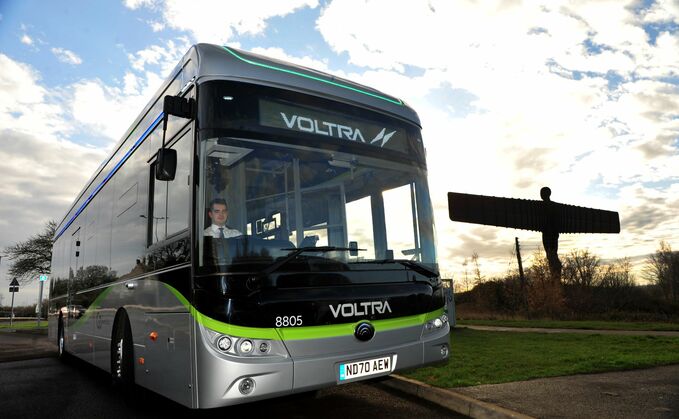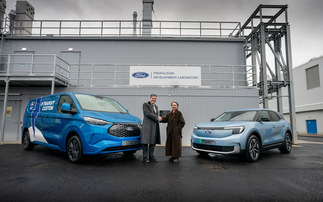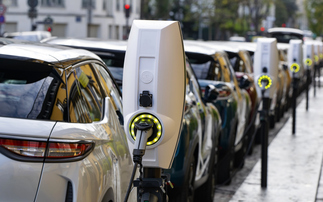A single-decker electric bus operated by Go-Ahead subsidiary Go North East in Newcastle | Credit: Go-Ahead
Over 1,100 zero emission buses entered service in the UK in 2023, according to the latest industry data
Nearly half of new buses bought in 2023 were zero emission, putting the UK at the forefront of Europe's electric bus market, new industry data has confirmed.
End-of-year sales data for the UK's new bus market published this morning by trade body SMMT reveals 45.1 per cent of new single and double decker buses bought in 2023 were electric or hydrogen, with 1,159 zero emission buses entering service in total.
Mike Hawes, chief executive at the SMMT, hailed the increase in the number of zero emission buses on the UK's roads as a major step forward for the industry, as he urged the government to build on the recent momentum by quickly allocating cash from the second round of the Zero Emission Bus Regional Area (ZEBRA) fund.
"Zero emission buses are on the verge of becoming the mainstay of what is now Europe's biggest ZEV bus market but we need the next round of funding - fast - to put even more on the road," he said.
The SMMT attributed the record zero emission bus sales figures recorded in 2023 in large part to the first round of the Zero Emission Bus Regional Area (ZEBRA) competition, which provided grants to local authorities to allocate to bus operators.
Hawes also called on Ministers to address licensing issues that was hampering the decarbonisation of minibuses. "Speeding up licence derogations could unleash demand in the minibus market, helping provide zero emission mass mobility for all with the air quality, carbon emission and wider economic benefits that come with this transition," he said.
While van drivers have a license derogation to drive zero emission vehicles weighing up to 4.25 tonnes, current regulations mean minibus drivers will not be able to do so until 2025. The SMMT is calling on the government to bring forward this date, arguing it would help boost demand for zero emission minibuses.
The trade body has today also published sales data for 2023 for the truck market, which reveals 234 electric and hydrogen trucks were registered across 2022.
The performance marks a three-fold increase on zero emission sales in 2022, although hydrogen and electric trucks continue to represent just 0.5 per cent of the new truck market, the SMMT warned.
Consequently, SMMT said it was critical that government sends stronger signals to market that the shift to zero emission trucks must accelerate, noting there was less than one full cycle of truck fleet renewals remaining before the 2035 deadline for the decarbonisation of trucks under 26 tonnes.
It also called on government to deliver a national charge point strategy that sets out how it will enable a rapid expansion in the number of charge points for trucks at depots, rest stops, and motorway service stations.
"Two years of growing demand for the very latest, fuel efficient trucks amid testing times reflects these vehicles' importance to the British economy - and with some HGVs facing the same 2035 end of sale date as cars and vans, the sector is also critical to our green goals," Hawes said. "Increasing availability of electric and hydrogen models - and record demand for them - is encouraging market growth, but operators need cast-iron confidence to switch. More than ever, government must compel truck infrastructure rollout and provide a signal that the time to invest is now."
Elsewhere, the SMMT's highlighted the ongoing recovery of the new truck and bus market since the pandemic slump. Demand for new buses, coaches, and minibuses reached their highest level since the pandemic with 4,932 new units entering service. Meanwhile, the new truck market recorded its best performance since 2019, increasing by 13.5 per cent to 46,227 units.
Want to understand what is going on at the cutting edge of sustainability? Check out BusinessGreen Intelligence - the premier information for professionals focused on the UK's green economy.









